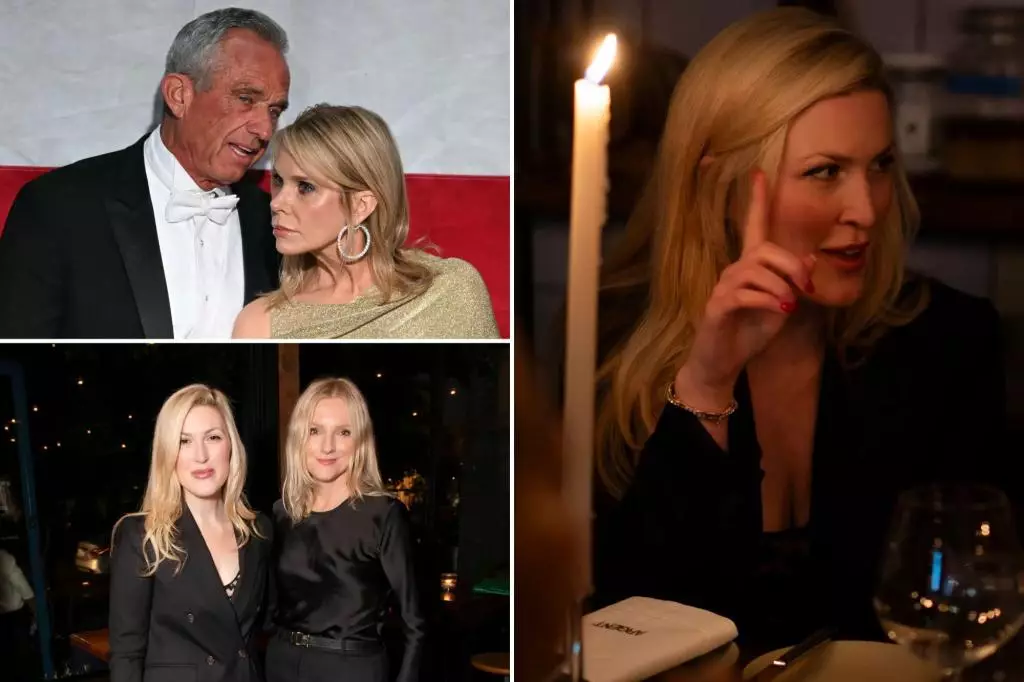In the ever-scrutinized realm of public life, the line between personal chaos and professional poise often blurs. This phenomenon has recently unfolded around political journalist Olivia Nuzzi, whose experiences offer insight into the complexities faced by women in high-pressure professions. As Nuzzi has navigated a tumultuous chapter in her life, the response from her contemporaries speaks volumes about societal biases and the scrutiny placed on women, especially in the political and media arenas.
A Fashionable Reappearance Amidst Scandal
Olivia Nuzzi made a noteworthy return to the public eye at a recent gathering in Los Angeles, showcasing effortless elegance despite the controversies that have recently engulfed her life. While participating in an event hosted by Argent—a noted fashion label frequented by high-profile women like Meghan Markle and Jessica Alba—Nuzzi wore a diamond tennis bracelet, a relic of her past engagement to Politico reporter Ryan Lizza. This appearance, marked by her chic black suit, provided an opportunity for Nuzzi to present herself as composed even as echoes of her personal challenges lingered.
An insider remarked how she received a warm reception at the event, emphasizing her ability to maintain a poised exterior. This dichotomy between her public composure and the turmoil in her personal life illustrates the precarious balancing act required of individuals in the limelight. Nevertheless, the allure of the fashion world provided her a supportive backdrop for her re-emergence, demonstrating how social settings can yield both respite and continued scrutiny.
Nuzzi’s entanglements with Lizza have been the subject of intense media analysis. After reportedly engaging in a sexting affair with Robert F. Kennedy Jr., Nuzzi found herself at the center of a scandal that threatened both her career and personal relationships. The fallout with Lizza has been particularly public and painful, with both parties levelling serious allegations against each other in court.
In her legal filings, Nuzzi has described Lizza’s threats of disclosing personal information damaging to her reputation, prompting her to seek a no-contact order against him. In stark contrast, Lizza has alleged infidelity on Nuzzi’s part with a married man, further complicating the narrative. The court drama not only highlights personal betrayals but reflects broader societal issues regarding how women’s actions are often scrutinized through a harsher lens than their male counterparts.
This case underscores an insidious double standard—while Lizza’s conduct raises questions about accountability in relationships, the focus quickly shifts onto Nuzzi, scrutinizing her choices, ultimately portraying her as the architect of her own misfortunes.
Nuzzi’s situation raises critical discussions about women’s roles and the often brutal scrutiny they face. Within the media landscape, women are frequently painted as temptresses or schemers when entangled in romantic scandals, whereas men receive a more lenient portrayal. The notion that “several of the world’s problems could probably have been solved” at a star-studded gathering hints at a resolution being found in solidarity among women, yet it sits within a context fraught with judgment.
Additionally, Nuzzi’s prior comments about female reporters facing undue suspicion based on their relationships only serve to amplify the irony of her current situation. By participating in a dialogue that insists women can be both intelligent professionals and complex, flawed individuals, Nuzzi’s experiences can bridge discourse about gender biases prevalent in media portrayals.
As she continues to navigate the aftermath of her engagement and public scrutiny, the notion of reinvention is palpable. L.A. is often viewed through the lens of transformation, serving as a backdrop for countless stories of redemption. For Nuzzi, this collective sentiment may offer not only refuge but opportunities to reshape her narrative.
The resilience displayed at the Argent event is indicative of an individual aware of the imbalances present in her professional landscape. Surrounded by a cadre of influential women, Nuzzi can lean on the framework of solidarity that transcends her personal challenges. In a society keen on celebrity culture, her ability to confront adversity while maintaining a sense of style and composure emphasizes the potential for growth amid life’s complexity.
Olivia Nuzzi’s journey—a tapestry of personal tribulations and professional aspirations—offers wider lessons about women’s experiences in the public sphere. As narratives unfold in a world that often seeks to label individuals, Nuzzi stands at a crossroads, embodying both the fragility and strength inherent in navigating life’s dualities.

